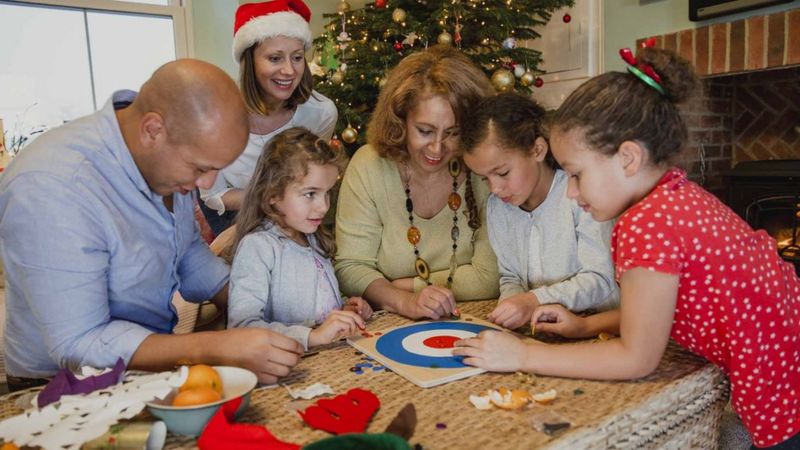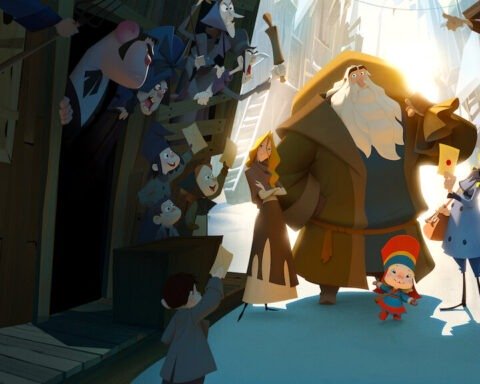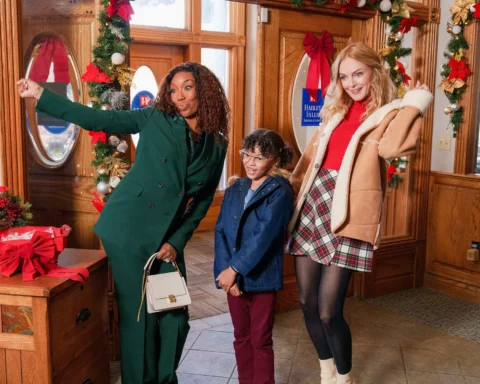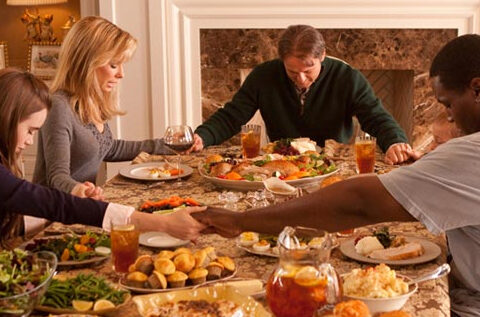Earlier this week, the government announced up to three households will be allowed to form a “Christmas bubble” from 23 to 27 December.
But the government’s scientific advisory committee, Sage, warns coronavirus could easily spread during the festive relaxation of the rules.
It’s beginning to look a lot like Christmas. The best Christmas movies of the last decade
They say people should still weigh up if an event could be postponed.
If not, meeting online or outdoors where the risks of transmission are lower, could be a better option.
But if you do go ahead, they say, it’s important to include everyone taking part in drawing up a plan for how to manage the event.
They highlight the particular importance of involving women in the decision-making.
The document says: “Women carry the burden of creating and maintaining family traditions and activities at Christmas.
“Messaging should be supportive of women adapting traditions and encouraging those around them to share the burden and to be supportive of any alterations to adapt for Covid-19 restrictions.”
‘Not a theoretical risk’
The advisers recognise that negotiating these arrangements may “create tensions”.
But they suggest a series of measures, ranging from minimising the numbers getting together to keeping events brief to avoiding physical contact.
Maintaining social distancing, keeping surfaces clean and opening windows to allow in fresh air are all highlighted.
There are also practical suggestions:
- Children should meet their grandparents outside where possible
- If staying overnight, children should share bedrooms with their parents, not the children of another household
- Be aware of the risk of spreading the virus by board games which involve lots of shared pieces – maybe try quiz games instead
But there’s a warning that no single measure will guarantee that Christmas is risk-free.
Scientists warn that, within households, one infected person can pass the virus to as many as 50% of the rest.
And they say that the spread of the disease could multiply as the newly-infected people return to their usual lives after the break.
In one paper, the advisers spell out that “this is not a theoretical risk”.
They point to earlier research into how other respiratory diseases such as pneumonia increase as older family members are exposed during the school holidays.
That’s why they conclude that cases are set to rise.
“The prevalence could easily double during a few days of the festive season, with further multiplicative increases as new infections go back to their “routine” networks.”
Another document published by Sage makes clear that most coronavirus infections happen during prolonged indoor gatherings of people who are familiar with each other.
That creates what’s called an “intimacy paradox” in which we let our guard down because we don’t see our loved ones as a potential dangers.
bbc






